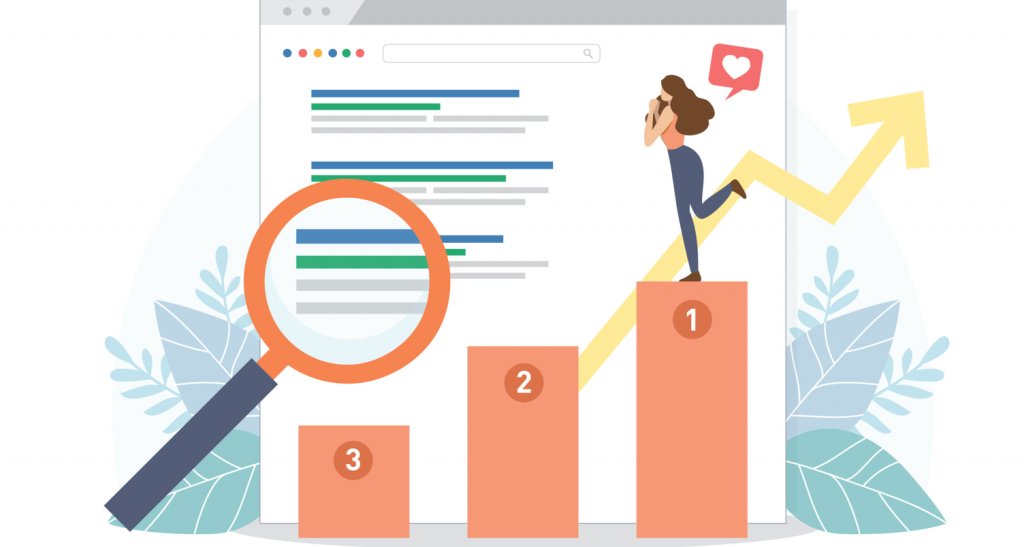You can create your blog to get started in the blogging world. You want to write and then wait for your readers or people who are interested in your content to arrive.
This is the problem with this approach. No one will ever read it unless they consider SEO and Social Media.
To make people know you, you need to perform exact and precise actions. You can’t stay there. Avoid these SEO mistakes that could affect the visibility of your blog.
13 SEO mistakes that you should avoid
Even though there are many forums and blogs dedicated to SEO today, it is amazing to see how many SEO mistakes are still made that can undo all of the hard work we have done.

We thought it would be convenient to provide a brief summary of all the factors that can negatively impact our SEO. This is important if you want your website or blog to rank in the top positions on Google.
1. SEO is a misunderstood topic
It is important to first clarify your doubts about search engine optimization. This is because, if you want this tactic to help strengthen your digital marketing strategy then it is crucial to know exactly what it is.
SEO Misconceptions
- It’s all in the links
- It ends once you reach the first page.
- It’s about keyword density (keywords).
SEO concepts that work:
- Ensure that you have satisfied the users before you finish.
- It’s all about semantics and meaning behind words.
2. Use of keywords (keywords incorrectly)
Optimizing pages with lots of keywords to help search engines classify them is a good idea. But nowadays, things are different. As I said in the previous point SEO is all about semantics and meaning.

To help search engines understand what pages you are writing, you must describe them using specific keywords that correspond to the content.
These are SEO mistakes to avoid when selecting keywords
2.1 Select keywords without any prior research
Keywords are words that people type into search engines to find information. You need to identify keywords that are most relevant to your industry, potential customers and then choose the best words for your niche. You should also look at the search volume and competition. It will be difficult to rank in search results if you choose keywords with a lot of competition.
2.2 Use very generic keywords (i.e. short tail)
Because they are generic and have more competition, it is best to use long tail keywords. The more specific you can make your keywords, the better.
If someone wants to buy a home, instead of writing “I am purchasing a home”, he might write “I am purchasing a house on two levels at Bucharest” or some other similar phrase.
2.3 Use the keyword in an abusive manner
This is a common practice, and Google may penalize you for it by either labeling your page spam or placing it at the bottom.
Here’s what you should do:
- Use specific keywords to describe your pages.
- Use long tail keywords
Write keywords that make sense within context.
- Bold keywords in your website content. This will allow users to concentrate their attention on the most pertinent words, and will greatly contribute to SEO optimization.
3. Site loads slowly
The search engine needs users to find information quickly and places a lot of importance on websites that load in under 2 seconds.

What are you supposed to do?
3.1 Optimize all images on your blog.
It’s as easy as going to Smush, an online Yahoo tool that will optimize your images within seconds. The best part is that it doesn’t take you long to do it all at once. You can attach the entire image folder to your blog.
3.2 Optimize your blog’s javascript
GTMetrix is the best online tool to accomplish this. This tool can optimize html code, images, and other aspects completely automatically.
4. Add weak content to complete the web page
Google revealed the three most important factors that can help a page rank higher at the start of 2016, and content was one of them.
You will get more backlinks (high quality, high-quality backlinks) if you create well-written, reliable and relevant content for your website.
Similar to the above, more people will discover your content, and you will receive more traffic over time.
This order should be followed:
- Copying/pasting from another website.
- To provide inaccurate and/or irrelevant information.
- It is important not to cite your sources.
Instead, you should:
- Write original, relevant content.
- To improve your publications, you can use visual resources.
- For greater credibility, you can quote data sources and phrases
5. Duplication of content
Duplicate content is one the most common SEO errors and is often penalized by Google. To bring new content, talk about original topics.
It is best to revise an article that you have published if it is very similar. This will allow you to reposition the content as part of an updated and indexed article.
6. Broken links
Google assures us that the 404 errors do not impact our ranking. However, annoying 404 errors every time someone attempts to visit us via a link can cause us to lose traffic and negatively affect user experience. We recommend that you identify and correct any 404 errors on your site.
Google will accept it as legitimate if the page is deleted or never existed. Your positioning will be affected if a page is re-created with an error other that 404 (temporarily unavailable), however. Google robots do not know about the existence of this page and will therefore evaluate it negatively.
7. Optimize the title and meta descriptions.
Because:
- Search engines can index them accurately.
- Tell people that they are looking for this content.
If possible, make your titles as questions. This is the way users search most often.
The meta description on your pages is crucial for describing your content. The meta description should contain the following:
- persuasion
- unique
- Specific and pertinent
8. All links should use the same anchor word
What is the meaning of anchor? This is the text you use to insert a hyperlink, i.e. This is the text visible in a hyperlink. It provides information to search engines and users about the content that you wish to address.
It is important to not use the same phrases or words for all links in order to optimize your anchor text. Google might consider them spam. You should vary them. It is important to make sure the model you create is as natural for search engines and readers as possible. Use connectors sparingly and choose words with a semantic meaning all by themselves.
Last but not least, make sure to include anchor words on your internal pages. Place them at the top, as this will allow you to benefit from a better placement and improve the user experience.
9. A responsive website that is optimized for mobile devices is not possible
Your site must be mobile-friendly if you want to compete for the top spot. Another major SEO mistake is this.
As I said, the majority of searches are made from mobile devices. This means that any brand shouldn’t ignore a website that serves customers’ needs.
Google is actually working on the AMP project (Accelerated Mobile Pages), where mobile-optimized websites will be highlighted and prioritized starting now.
This error can be corrected to improve the user experience, speed of web page loading, mobile SEO, and competitive advantage.
10. Excessive linking
You must not cross the line between permissible and prohibited. You should not attempt to trick Google by creating artificial links to the site, or using techniques like buying, selling, exchanging, or exchanging links. This includes marketing articles, commenting in forums, and any other program or automated system that attempts to manipulate links to your website.
A good content strategy is essential to build links and make this technique more beneficial to PageRank. This includes creating quality podcasts, articles, videos, and other media. This is content that’s interesting to your audience and aims to link us naturally. Also known as “linkbaiting”.
It takes time to get links that naturally link to your project. It takes time and effort to create useful content, but it is worth it. Google will be more supportive of us, and this will help us position ourselves better.
11. The more labels you have, the better.
Excess is bad as with everything. You can improve your page’s positioning by using the right tags. Let’s say you have a tag called “healthy food”. Google will crawl your page and determine if there is any updated content. It also aids in indexing and improves user experience by allowing visitors to search for related content.
Google will punish you if you have too many tags for the same post.
12. Social networks are not worth your time.
We don’t mean to say that Google will only appreciate your profile on Facebook and Twitter if you use them properly.
To make it clearer, let’s say you have a blog on organic food. You publish original and high-quality content daily that is relevant to the general public. You will have a smaller number of publications if you don’t do any dissemination actions than if your profile is created on Facebook. Users will share your content, visit your blog, and spend time reading it. Your ranking will improve indirectly if your website experience metrics are improved.
13. Google Plus is ignored
Another common SEO mistake that many make is to ignore Google+. Google+ isn’t a social network that is accessible to all audiences. It is also not as popular than Instagram, Snapchat, Twitter, Instagram, and Snapchat. However, it is still a very bad decision to ignore Google+ if you want to improve your ranking.
Make sure you create a profile and optimize it. You can also publish your articles on this social platform. This will help you to position yourself better.
Let’s conclude…
